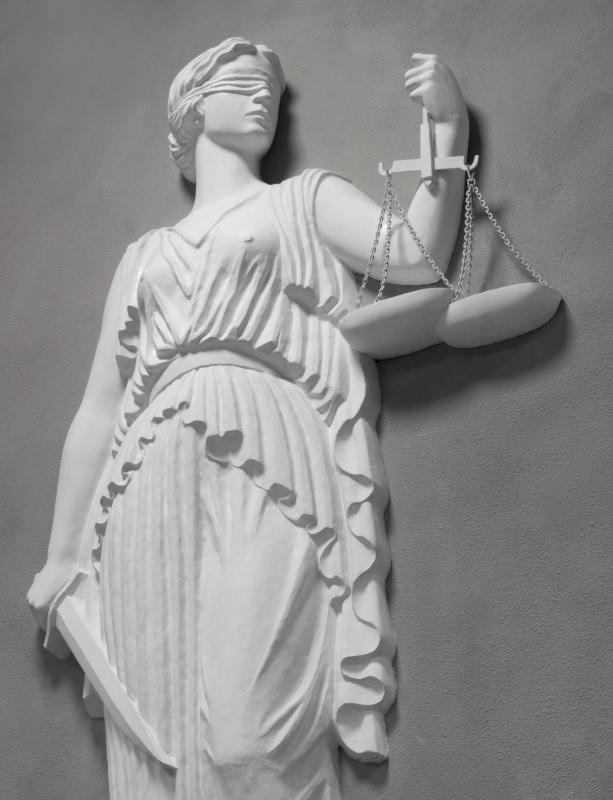At WiseGEEK, we're committed to delivering accurate, trustworthy information. Our expert-authored content is rigorously fact-checked and sourced from credible authorities. Discover how we uphold the highest standards in providing you with reliable knowledge.
What is Natural Justice?
The principles of natural justice set out procedures to be used to ensure that judicial proceedings are fair for the participants. These principles are used in jurisdictions where the justice system is based on common law and civil law. In a proceeding conducted under the principles of procedural fairness, a party is fully informed of the charges or allegations being made against him or her, the judge hearing the case is unbiased, and any judgment or verdict must be made based on the evidence presented.
A person who is being charged with a crime has the right to be informed about the charges being made against him or her. The accused and his or her legal representative are provided with details of the facts of the case that prosecutors intend to present at trial. The principles of natural justice dictate that the accused person should be given adequate time to prepare a defense to any charges being made against him or her.

Another important principle of natural justice is that the judge hearing the case must be unbiased. A member of the judiciary who knows one of the parties or who has knowledge about the case that would make him or her biased is required to make that fact known. In that instance, the judge is required to step down from the case and let someone else hear the evidence.
Each party is given the opportunity to present a case to the judge or judge and jury. Lawyers for the prosecution and the defense are able to question witnesses who are delivering evidence at trial. They also have the right to bring forward witnesses who can refute evidence already given during the proceedings.
Investigators who are gathering evidence are also required to be unbiased while performing their duties. A person with a conflict of interest is barred from participating in the investigation. They are to remove themselves from participating in the evidence-gathering process.
Police officers and investigators gather evidence and bring charges against an individual based on where it leads. This process doesn't involve suspicion or speculation. Under the principle of natural justice, the investigators in a case must be able to point to the evidence they have gathered that led to the charges being laid.
When the time comes for a judge or jury to make a decision about guilt or innocence on the charges, they can consider any extenuating circumstances. Any considerations that are not relevant to the charges should be ignored. The principles of natural justice are in place to ensure that the public has confidence in the judicial system by creating a level playing field for all parties.
AS FEATURED ON:
AS FEATURED ON:











Discuss this Article
Post your comments